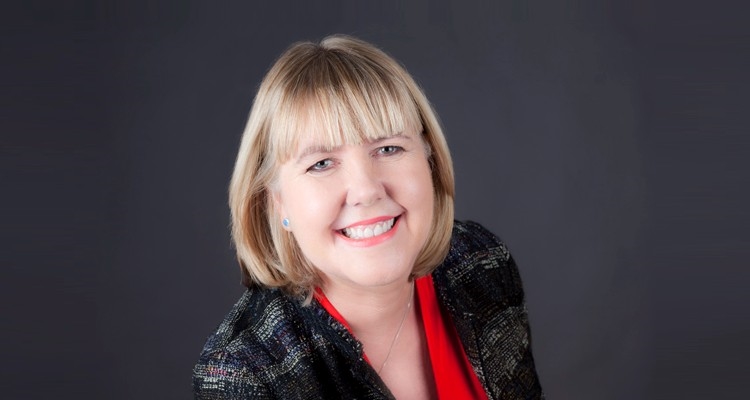Tue 26 Oct 2021

Gillian Fawcett, chair of the conference Women in Public Finance, discusses the role of female leaders in the sector, and why the online event on 30 November is a milestone in the UK’s D&I journey
By Murielle Gonzalez
Having women at the decision-making table improves business performance. This argument has been demonstrated by industry research and academia time and time again. For example, the latest report 'Women in the Workplace' from consultancy firm McKinsey found that female representation in the higher ranks of an organisation can increase company profits and share performance by nearly 50%. Research by Pepperdine University also proved a correlation between profitability and women leadership and found that organisations that promote women to senior positions increase profitability by 19%. However, little attention has been paid to the impact women have in public finance management — until now.
The Professional Women Series of Dods Diversity & Inclusion is hosting the UK's first conference dedicated to women in this area. Women in Public Finance is an online event on 30 November brought to you in partnership with Public Finance by Women (PFW), a UK organisation with a global reach, providing support to women in the sector.
Gillian Fawcett, founder of PFW, explains that the business case for having female leaders in public finance takes on a whole new meaning. This is because "women in public finance are at the heart of government, and they have a direct contribution to decisions that allocate resources to realise policies that affect millions of people", she says.
Gender balance in decision-making roles
The discourse of gender balance in business leadership is increasingly shifting from reflection to action. Organisations are more and more open to promoting women — and all efforts in this direction are partly possible thanks to the available data.
For example, the government-backed Hampton-Alexander Review of FTSE women leaders found that a third of all board positions in the UK’s FTSE 100 companies were held by women at the beginning of last year, up from 12.5% compared to less than a decade ago. The 2021 figures put women’s representation at 36.2%.
However, the review revealed a concerning lack of female representation in senior leadership and key executive roles in FTSE companies — in 2019, just 15% of FTSE 100 finance directors were women.
The government's expectation of achieving a higher representation of women in the decision-making table in the corporate sector is a positive sign. Still, little we know about the strategy to put the house in order.
The landscape of gender balance in public finance management is unknown territory. "We really don't know the extent to which women are leaders in public finance because there are no comprehensive data,” says Fawcett. “A lot of it is anecdotal evidence or bits and pieces pulled together."
Fawcett explains that the International Budget Partnership, UN Women, and INTOSAI (the International Organization of Supreme Audit Institutions), are among the few organisations making strides in drawing together the views of CSOs, Ministries of Finance, and Supreme Audit Institutions from around the world. Indeed, what we know so far is that across 188 countries, there are only 39 women ministers of finance.
"If we look at the UK, for example, we've never had a woman Chancellor of the Exchequer, and we've never had a woman head of the Bank of England," says Fawcett. She notes that PFW's own research into London Boroughs and NHS Trusts found that only 30% of women in these organisations were directors of finance in 2019.
Women in public finance unite

Gillian Fawcett has a long-standing career in public finance. Her experience spans 25 years in national and international leadership roles for diverse organisations, including public, not-for-profit, professional, and consultancy bodies. She will be chairing the conference Women in Public Finance on 30 November.
Fawcett understands the challenges women face in a male-dominating work environment such as public finance — she has experienced it first-hand. "Sometimes the business is done outside of the meeting room in a bar or on the golf course," she says. "So very often, it is very difficult for a woman to go and break into that group, but their conversations are about the business. So, you come back into a meeting the following day, and find the business has already been done and decisions made."
For Fawcett, the upcoming Women in Public Finance is a unique opportunity for professionals in the sector to see that they are not alone, get inspired, and discuss together what can be done to pave their way to become leaders in the sector.
She explains: "The Women in Public Finance conference makes history in the UK. It will be the first platform in the country for women in the sector. People will benefit from hearing from a range of expert speakers who will provide guidance on coping strategies and dealing with the challenges of the post-pandemic world. They will also hear from a range of leaders about their success stories and the importance that mentoring can bring to them.”
Some of the sessions you don't want to miss:
- Leadership material: how to increase your visibility to position yourself as leader
- Thinking strategically: using self-awareness to drive better decision-making
- Preparing for success: laying the groundwork to communicate with impact
- Leading a change in culture: where do we go from here?
Visit the event website to explore the agenda and book your place today.
ABOUT THE AUTHOR
Murielle Gonzalez, content strategy manager at Dods Diversity & Inclusion, is an experienced journalist and editor. She can be reached on murielle.gonzalez@dodsgroup.com.
View all news